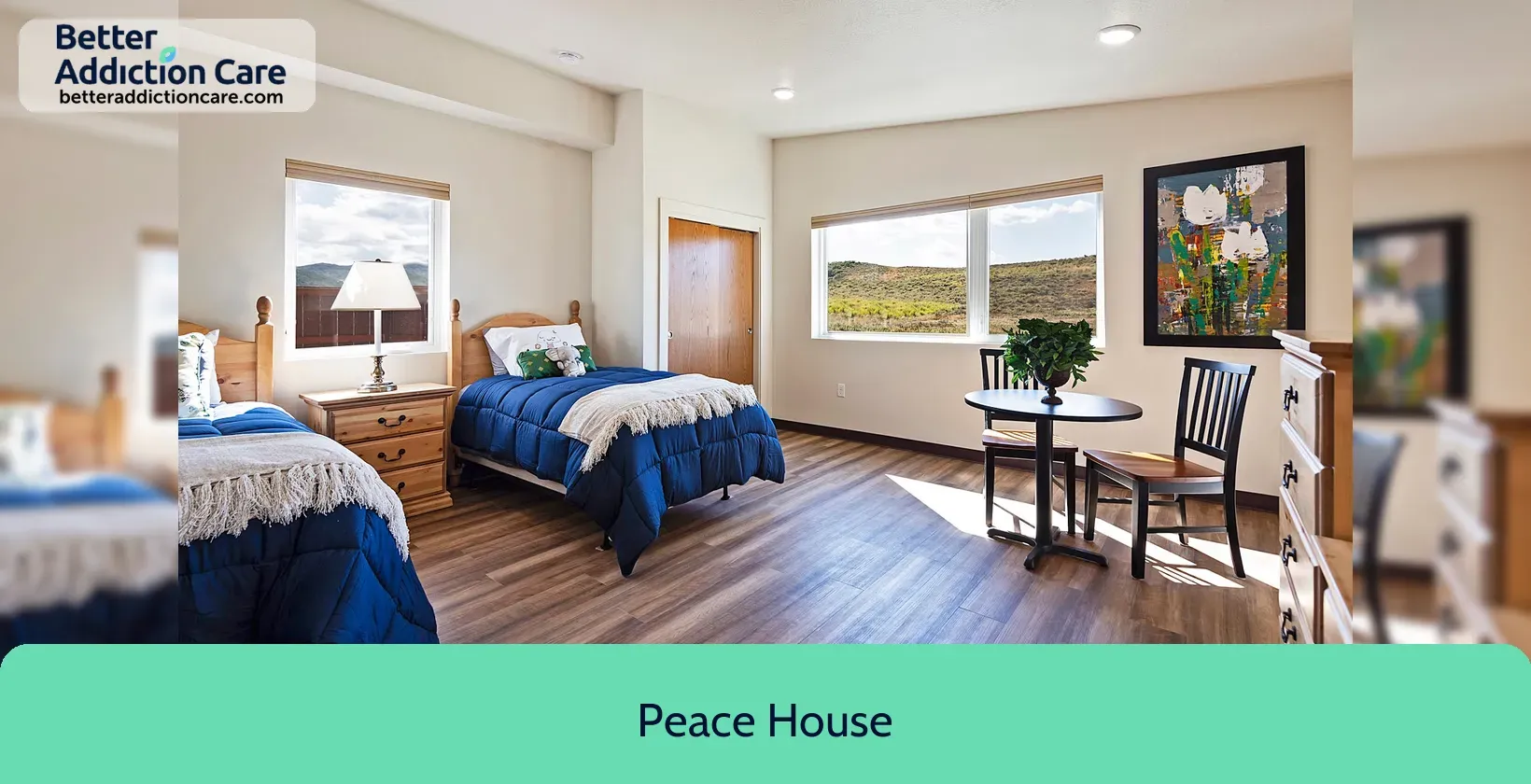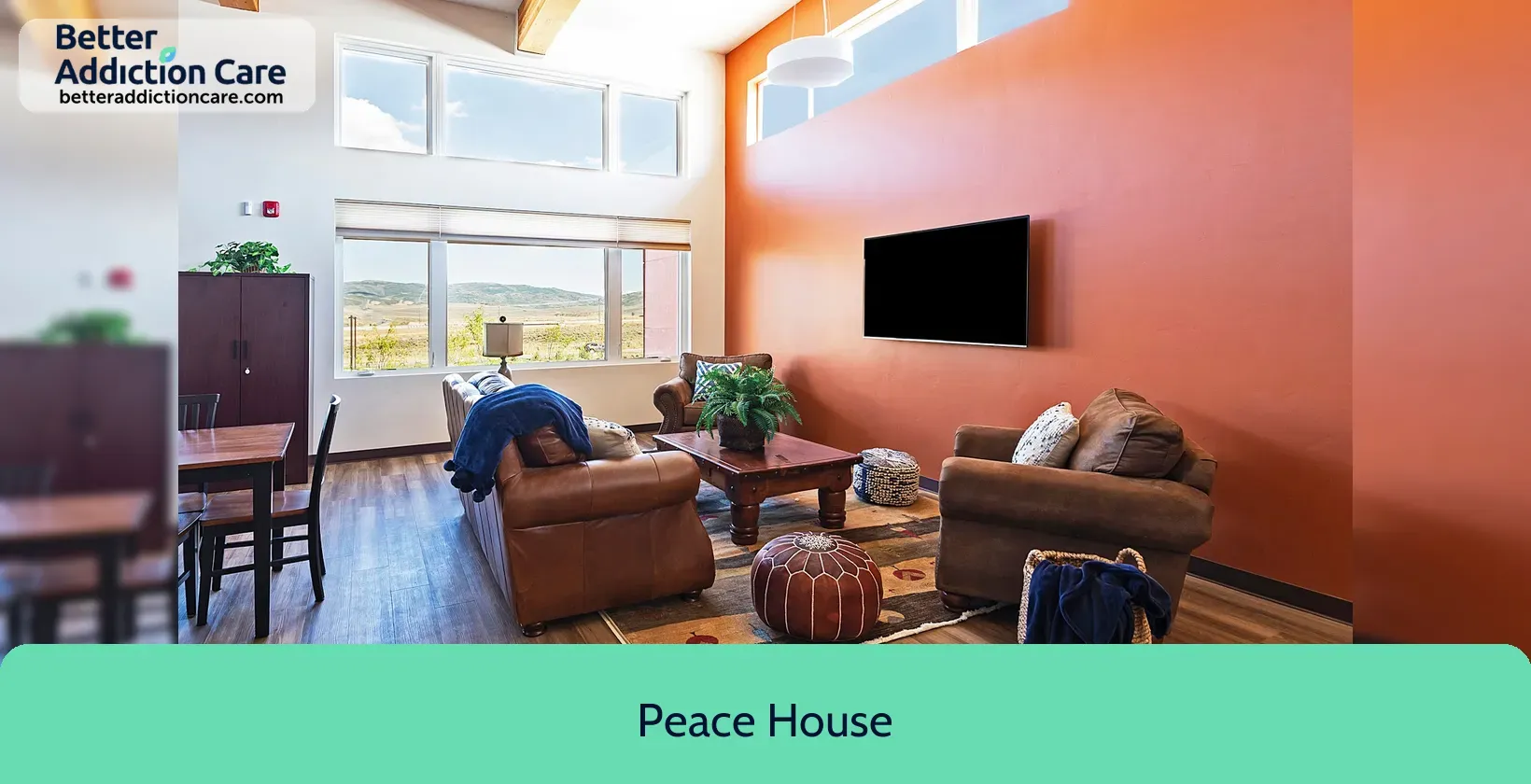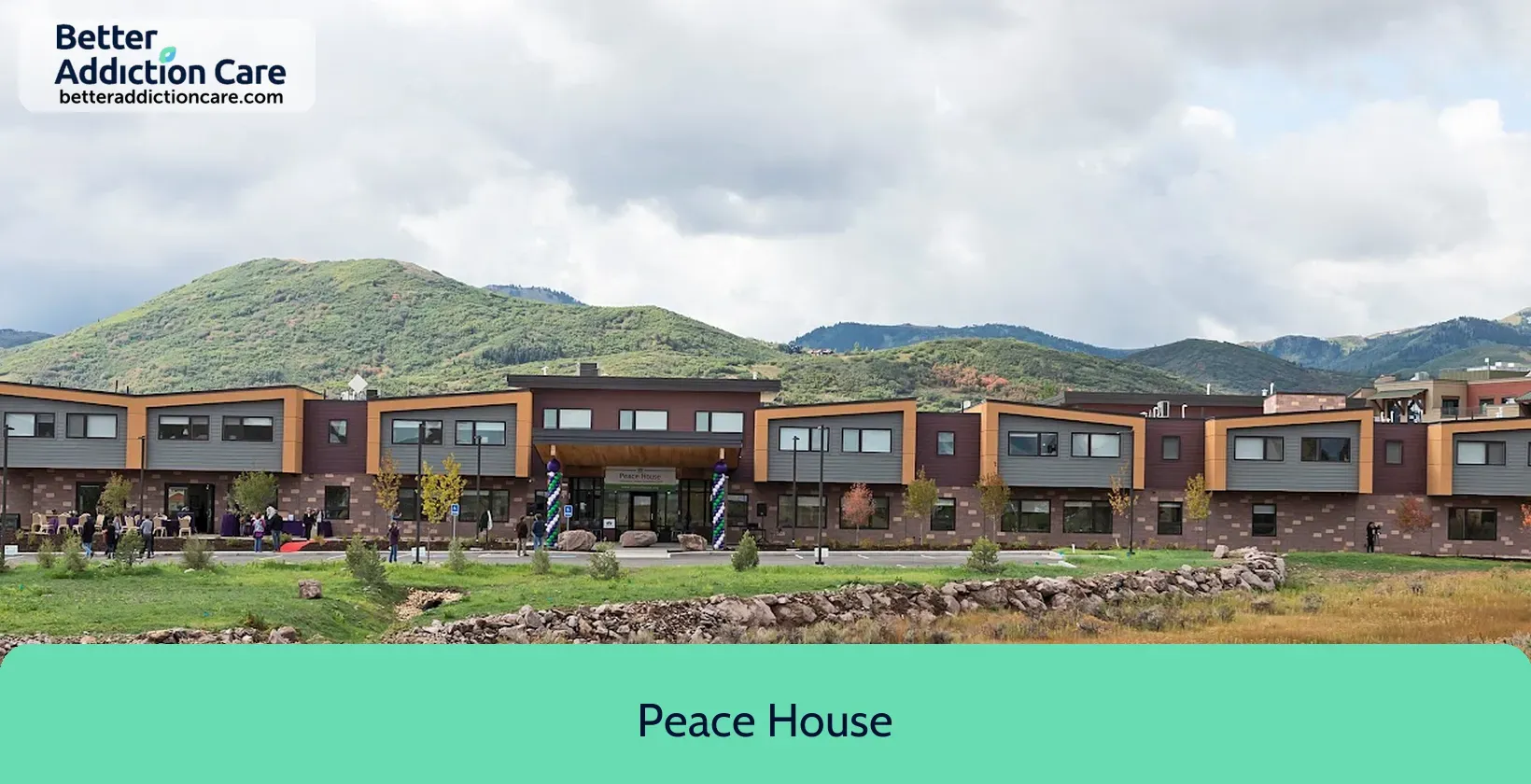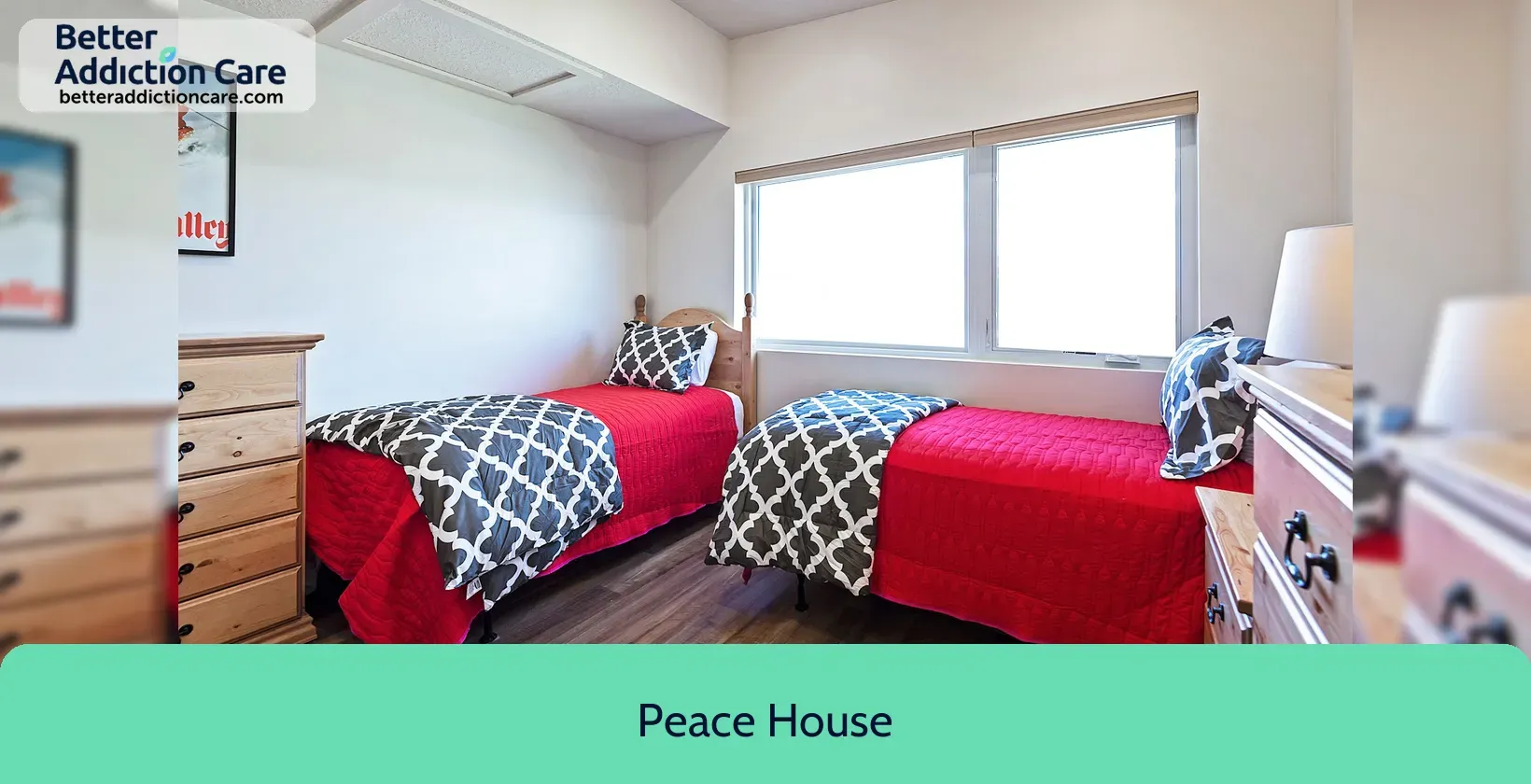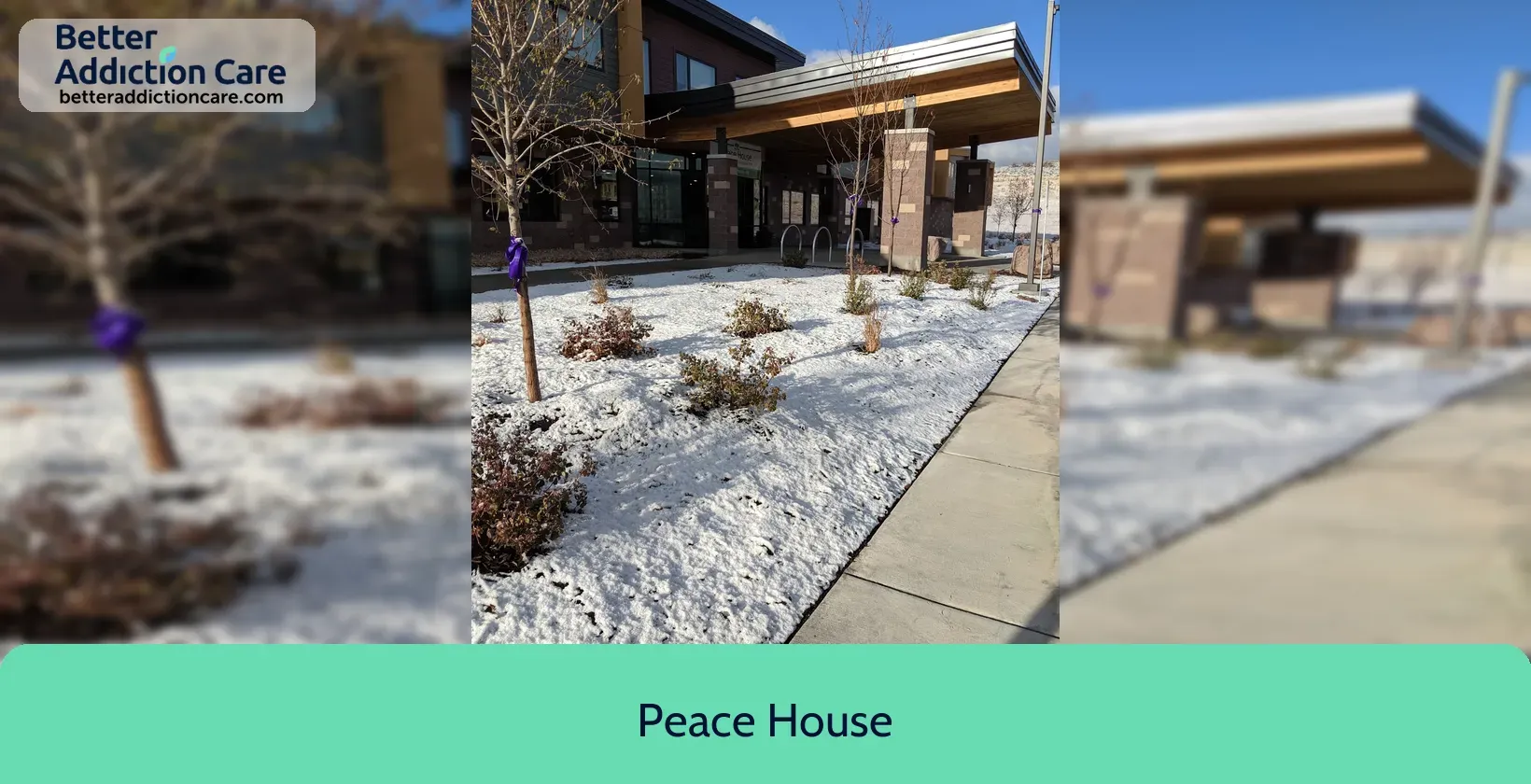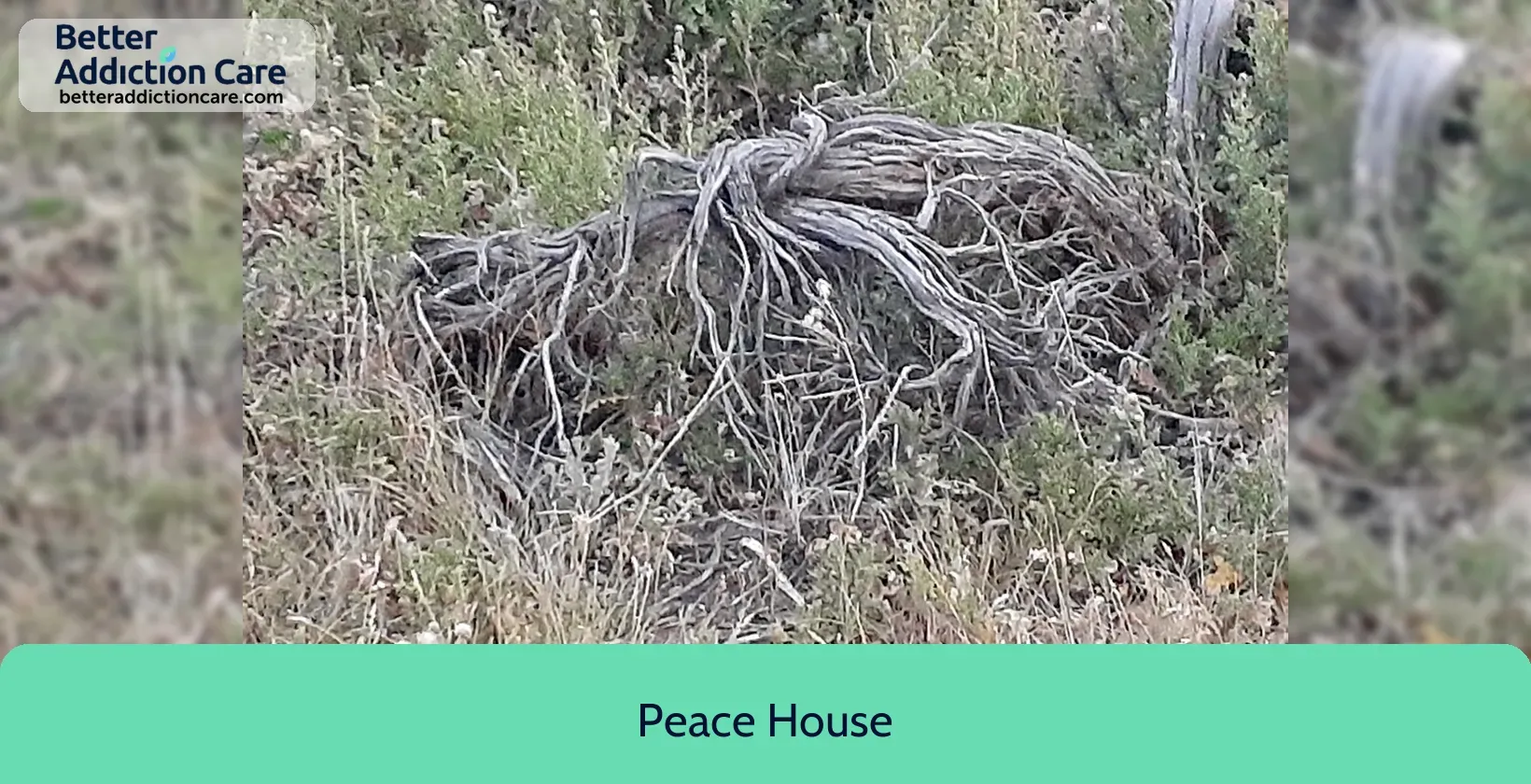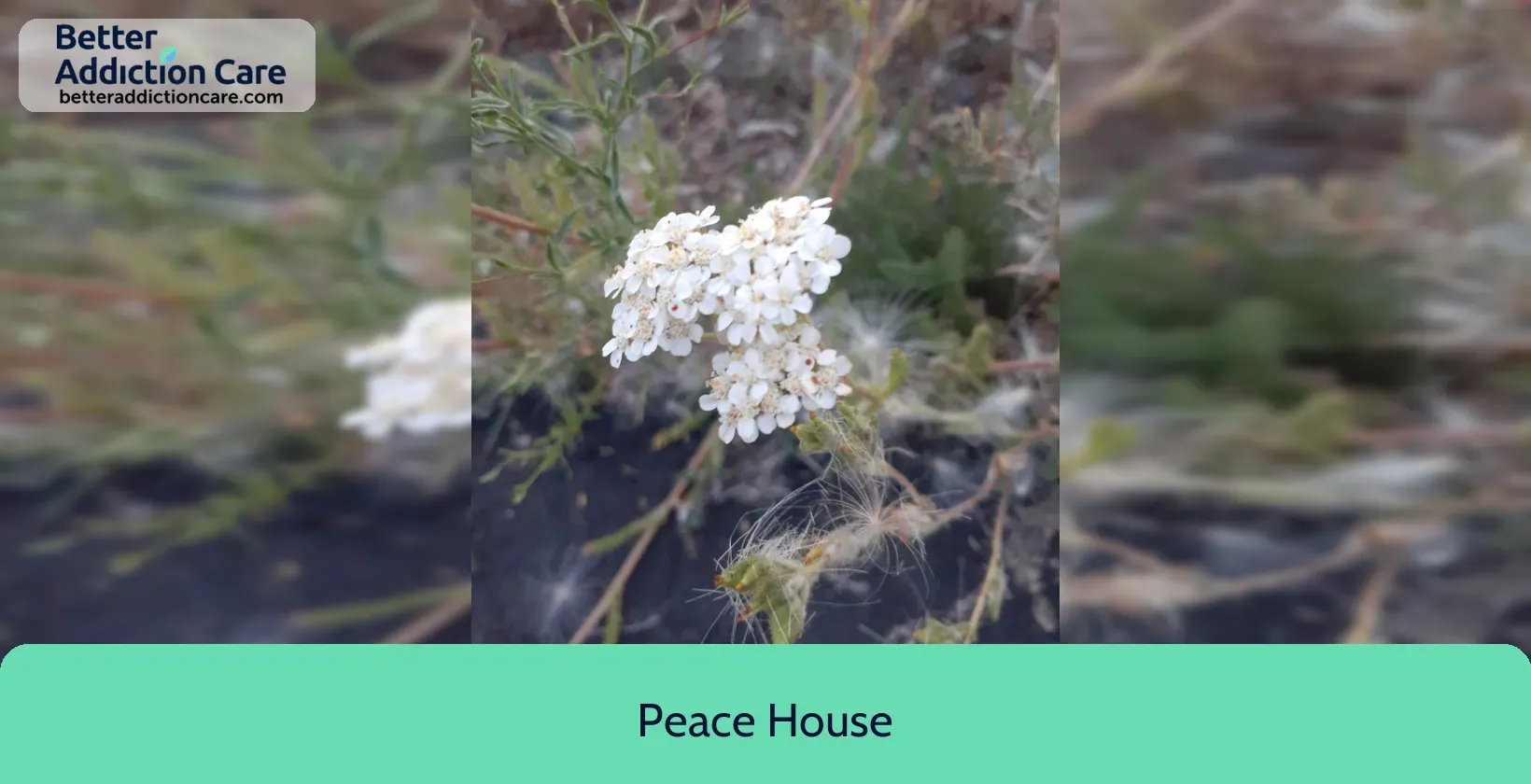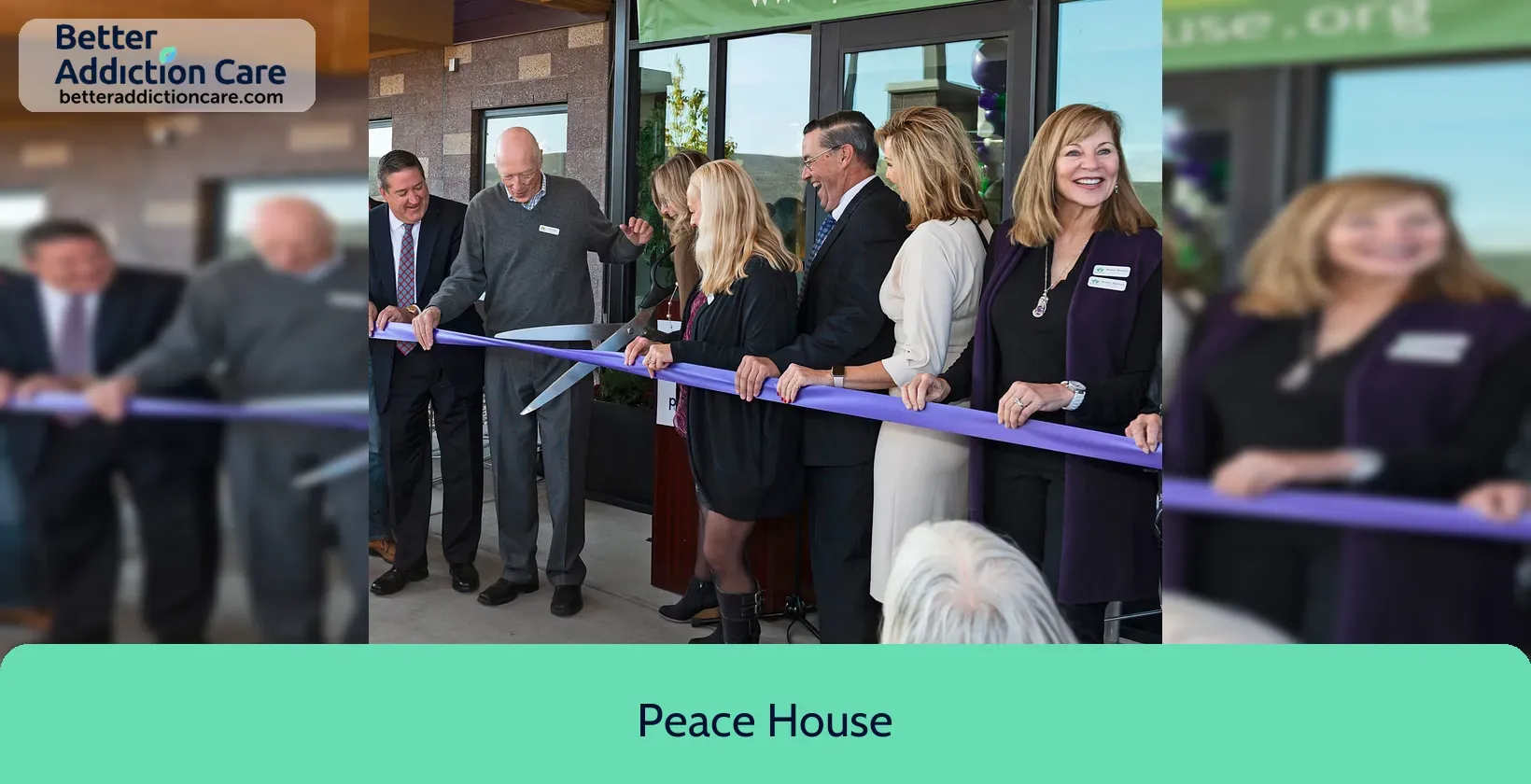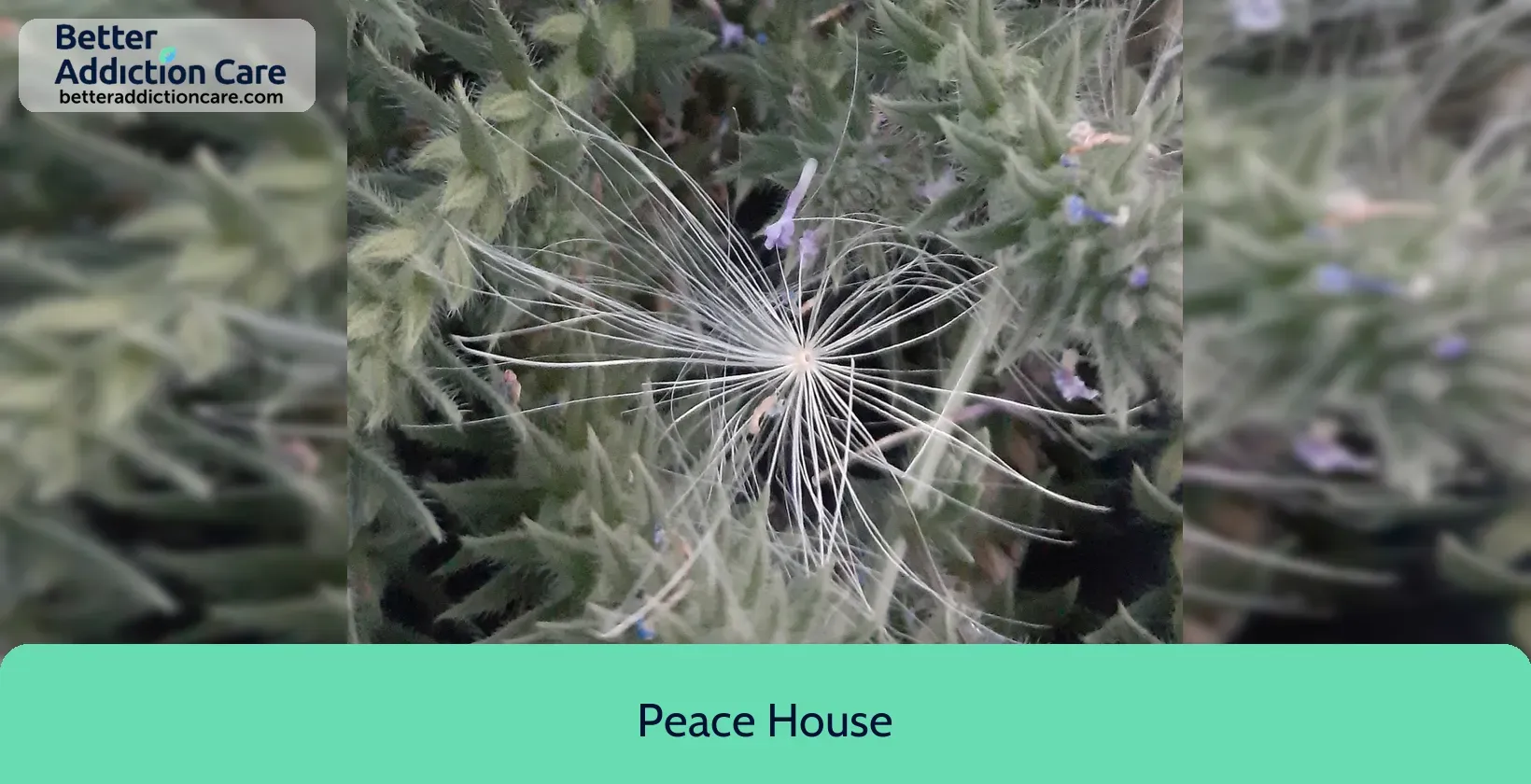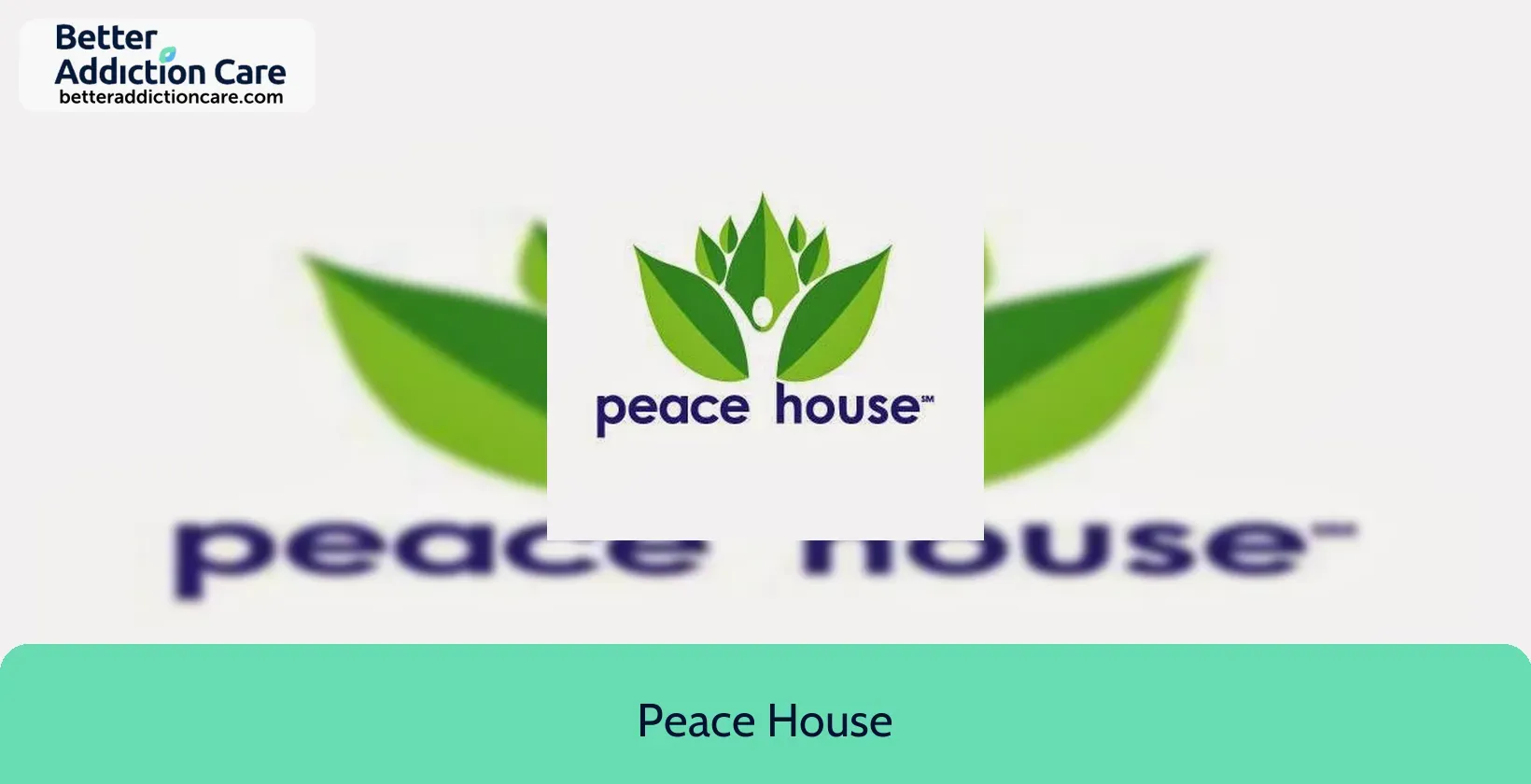Peace House
Overview
Peace House is a mental health treatment center for people seeking treatment near Summit County. As part of their treatment modalities for recovery, Peace House provides couples/family therapy, group counseling, and telemedicine/telehealth therapy during treatment. Peace House is located in Park City, Utah, accepting state welfare or child and family services funds for treatment.
Peace House at a Glance
Payment Options
- State welfare or child and family services funds
- Other State funds
- County or local government funds
- Payment assistance (check with facility for details)
- Private or Community foundation
Assessments
- Comprehensive mental health assessment
- Comprehensive substance use assessment
Age Groups
- Children/adolescents
- Young adults
- Adults
- Seniors
Ancillary Services
- Case management service
- Family psychoeducation
- Legal advocacy
- Suicide prevention services
- Supported housing
Highlights About Peace House
6.59/10
With an overall rating of 6.59/10, this facility has following balanced range of services. Alcohol Rehabilitation: 8.00/10, Drug Rehab and Detox: 6.00/10, Insurance and Payments: 6.00/10, Treatment Options: 6.36/10.-
Alcohol Rehabilitation 8.00
-
Treatment Options 6.36
-
Drug Rehab and Detox 6.00
-
Insurance and Payments 6.00
Treatment At Peace House
Treatment Conditions
- Mental health treatment
- Substance use treatment
- Co-occurring Disorders
Care Levels
- Outpatient
Treatment Modalities
- Couples/family therapy
- Group counseling
- Telemedicine/telehealth therapy
- Eye Movement Desensitization and Reprocessing therapy
Ancillary Services
Special Programs
- Clients who have experienced trauma
- Clients who have experienced intimate partner violence, domestic violence
- Persons with post-traumatic stress disorder (PTSD)
Contact Information
Read our Most Recent Article About Drug Addiction
DISCLAIMER: The facility name, logo and brand are the property and registered trademarks of Peace House, and are being used for identification and informational purposes only. Use of these names, logos and brands shall not imply endorsement. BetterAddictionCare.com is not affiliated with or sponsored by Peace House.
